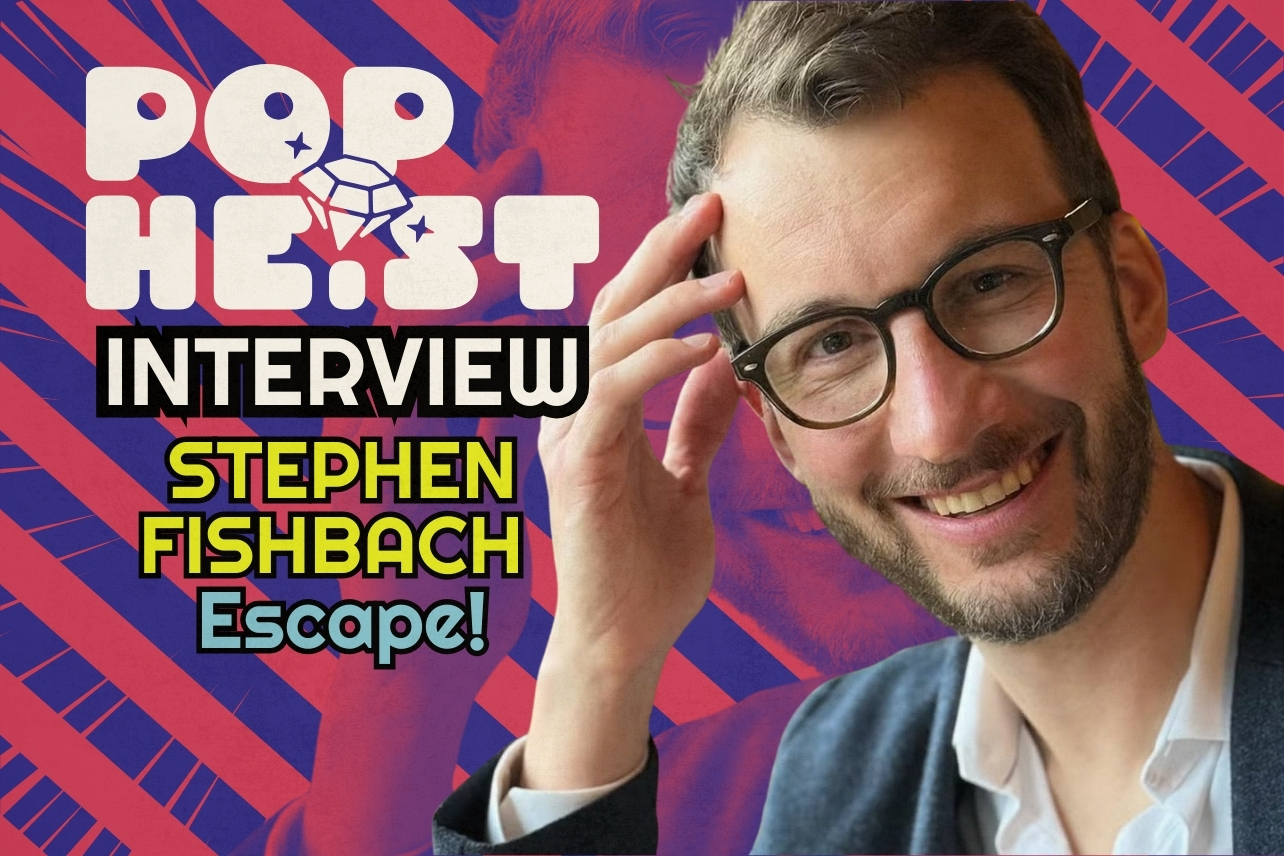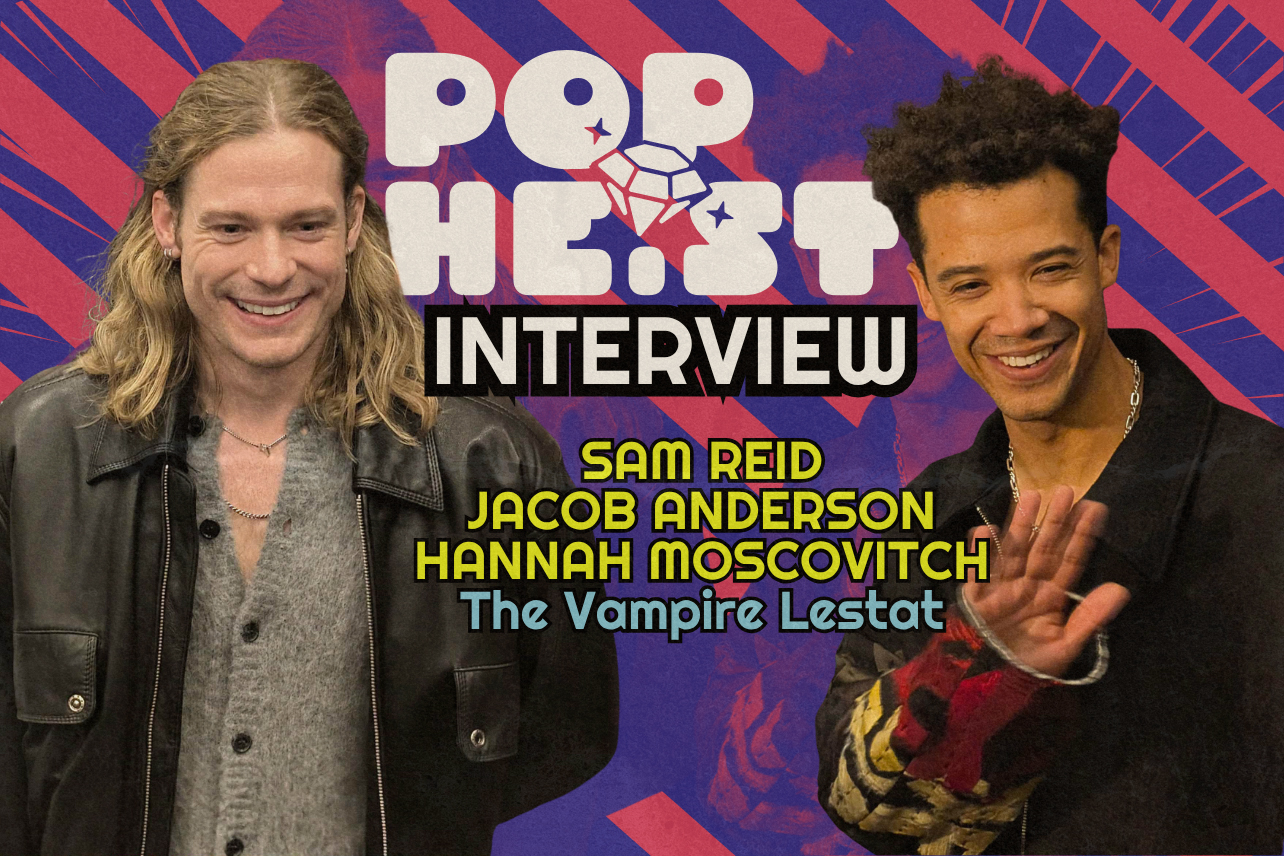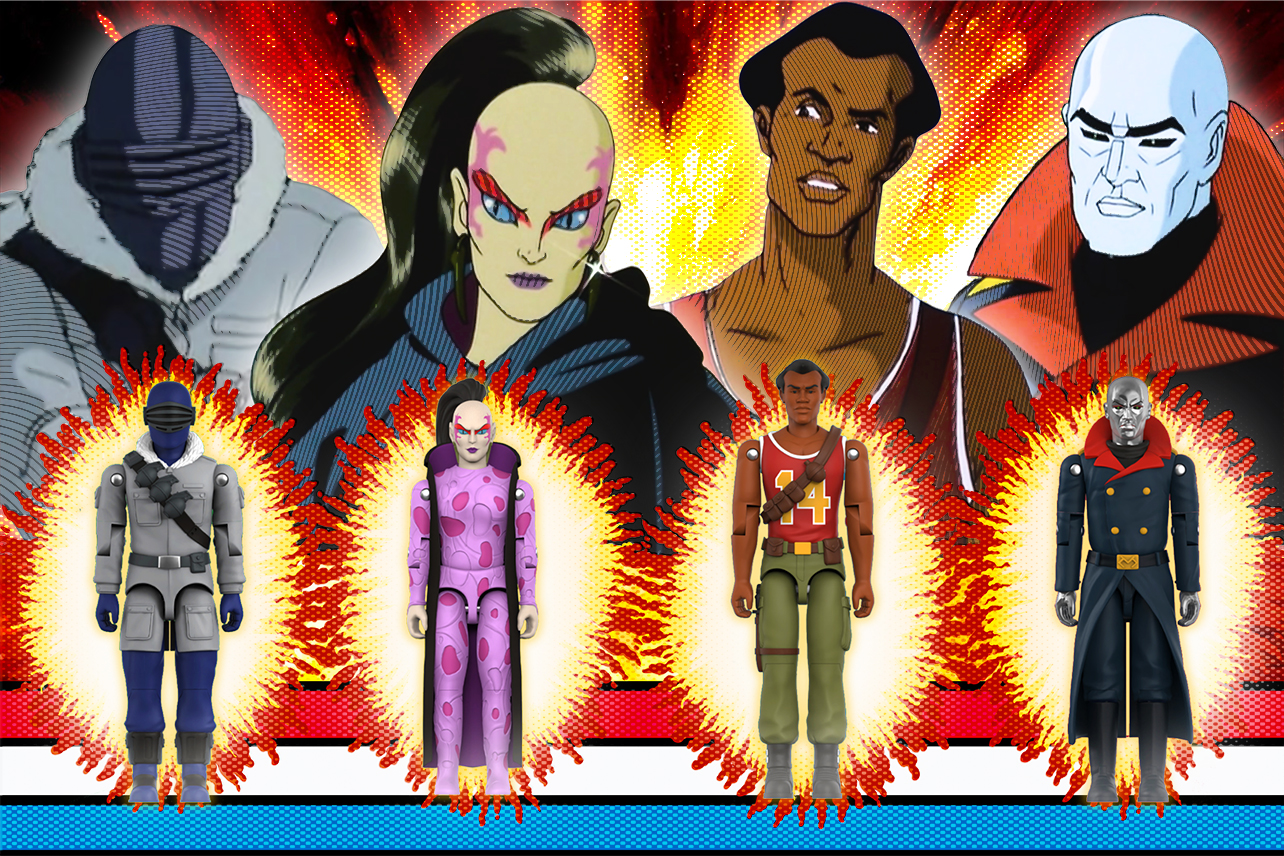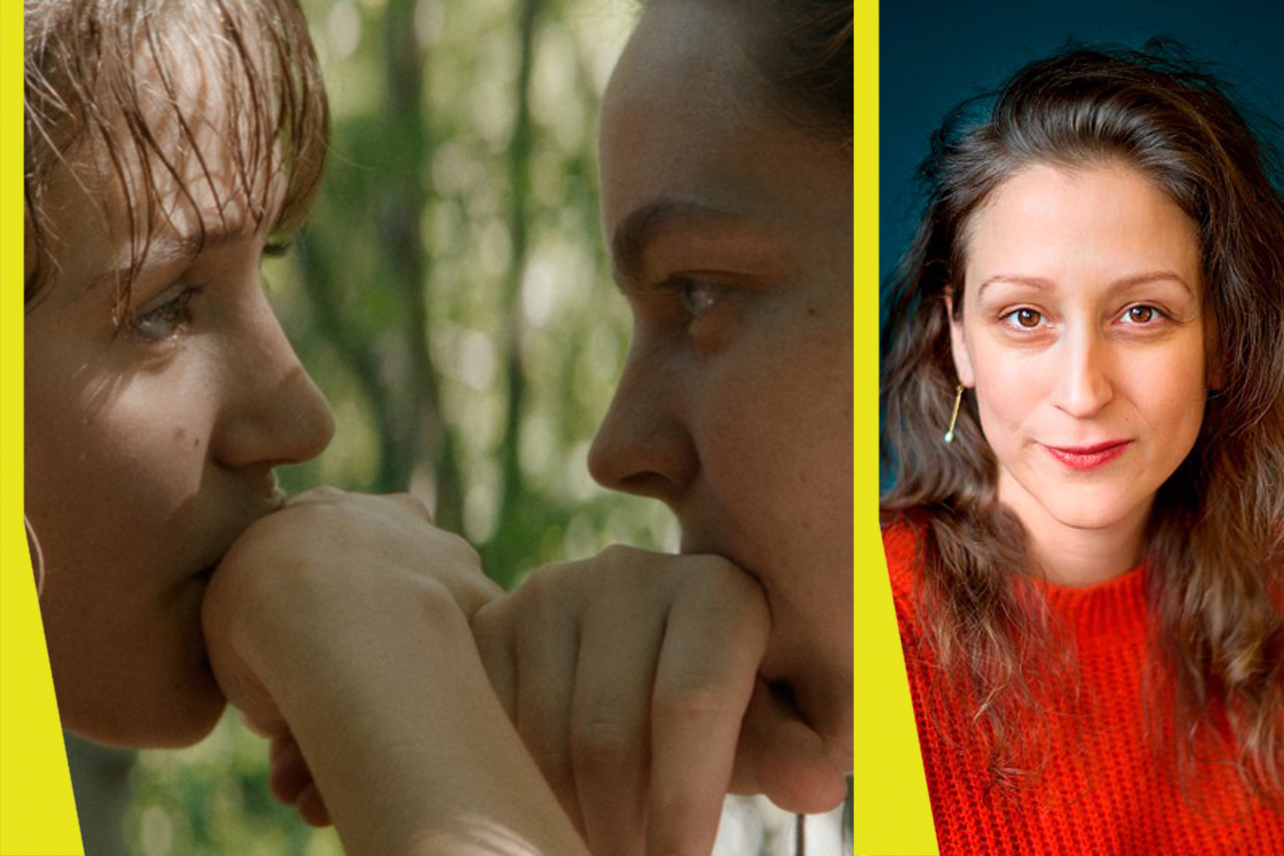We all have our childhood faves, those shows or movies or pop culture institutions that not only entertained us, but made us feel like ourselves. But how many of us, upon reaching adulthood, decide to step up and bring all of our professional acumen to lift up those formative pieces of fiction? Considering that the year is 2025 and we're just now getting Morphenomenal: How the Power Rangers Conquered the World, I'm going to guess not many of us have that level of dedication. Joshua Moore, however?
A Kentucky-based sports reporter and newspaper journalist, Joshua Moore may seem like an unlikely candidate to be the one to finally provide bookstore shelves with the in-depth Power Rangers origin story that the fandom has long deserved — and Moore would be the first to tell you that. But Moore, whose love of Power Rangers stretches further back than his memory, saw something and did something — or, rather, he saw nothing where there should be something.
Thus, Morphenomenal, a chronological, heavily-researched, journalistic look at the birth of one of the last true pillars of pop culture. This is the culmination of years of work, the product of the kind of willpower and tenacity that the Power Rangers inspire in their audience.
I got the chance to chat with Moore about all things Power Rangers, from him burning through VHS tapes as a kid to going to extremes as an adult to try to land interviews for this very book. Read on, Ranger fans — !
Brett White: Where did the idea of writing a detailed history of Power Rangers come from?
Joshua Moore: It was the summer of 2021, my then girlfriend (now wife) and two other couples that we know, we're all going to get away and get a condo for a week after a year of lock up. I was reading Claire McNear's book about Jeopardy, Answers in the Form of Questions, and I was about halfway through, and I started thinking, "Why doesn't this exist for Power Rangers?" Like, more of the blow-by-blow narrative, really telling the story. I went from there.
What was that feeling like, to actually dive into it? Were you like, "If no one else is going to do it, then I guess it falls to me"?
That was the exact thought I had, and that sounds pompous. It's taken me a while to get to the place where I feel comfortable saying that I'm a good enough writer to do this. We're all self-conscious, especially as artists. But regardless of how successful it is, I'm the only person that's going to come up if you Google "Power Rangers history." There is a visual history table top book that has been out of print for seven years now, but it was an officially sanctioned thing. It's a very different thing than what I've done. But there's not enough respect for children's television in terms of doing a book like this. There's just not anything out there for kids TV that's what I've aimed for this to be. I wanted this to be like the Seinfeldia for Power Rangers.
And obviously the story of how the Power Rangers came to be isn't exactly a mystery. It's a story that's been told, even recently in an episode of Max's Hollywood Demons. But things like that focus on the more scandalous aspects, or treat the stories as salacious. But, like, I'm a lay-person when it comes to Power Rangers, so I didn't know there was a Yellow Ranger who was fired during the pilot. How do you balance writing a book for people who have nostalgia for Power Rangers and the super fans?
Yeah, the Audri Dubois thing, the original Yellow Ranger, that's super common knowledge in the fandom. It's not something that gets fans excited. I think the best reader for this book is really somebody who didn't stick around, like they were really into it as a kid and then haven't thought about it since, or have thought about it enough to think, "I want to know more."
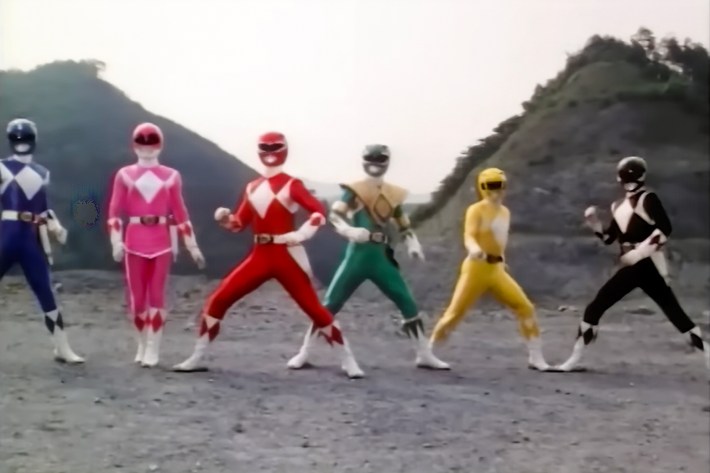
But what I was really trying to hone in on is, what can I do to tell this story in a way that is exciting for fans, even though they know 90 to 95% of what's in this book already because they've been talking about this shit on the internet with each other since the show started back on Usenet forums. I wanted to make it something they can still be excited about.
What's the structure of the book like? With a franchise this large, there's a lot of ground to cover.
It's mostly chronological. We start before Power Rangers exists, with the guy at the center of it, Haim Saban. He is now an incredibly massive figure in politics and a multi-billionaire. Then he was a poor kid in Tel Aviv, Israel, just trying to figure his life out. And so we start there and tell his story, how he came up through the ranks, to the people he stepped on to get to where he was before he even got to Power Rangers. Then we go through the making of the show, how it got pitched and some backgrounds with key figures. Margaret Loesch is someone who's just massively underserved in the entire power ranger story. X-Men, G.I. Joe, Transformers, My Little Pony, she has her fingerprints on anything that anybody likes. We spoke. We've stayed in touch and communicated a lot. She is the nicest woman in the world, but also her vision and where she comes from in terms of how she produces and looks at kids TV — if everybody came at it from that point of view, I think everything would be awesome.
When did your own Power Rangers fandom begin?
I have been a fan since it started, but I was two when it started, so I don't remember. My mom does, though. She's said I would get mad, we couldn't leave the house until it went off when I was a toddler.
When you talk to people, there's always a swap out of teams, and around middle school, high school, you'll drop out of it. You think it's for babies or whatever, and then you come back to it eventually. I didn't go through that phase. I did have people, including people at the time who were friends, but they tried to pick on me [for liking Power Rangers]. One thing my parents instilled in me was if somebody is picking on you, you don't take it. You give it right back to them.
Who do you consider your Power Rangers? Is it the original five, or the cast after the first changeover?
Who are my Power Rangers? It is the originals. I don't remember watching the originals as they aired, but we had VHS tapes, so I remember burning through those. About the time when I started having memories of the show is 1997, 1998. That was around Power Rangers Turbo and In Space. But at the same time, they started this thing called Power Rangers Playback, where they were just rerunning the old ones all the time too. So you're just getting inundated with Power Rangers.
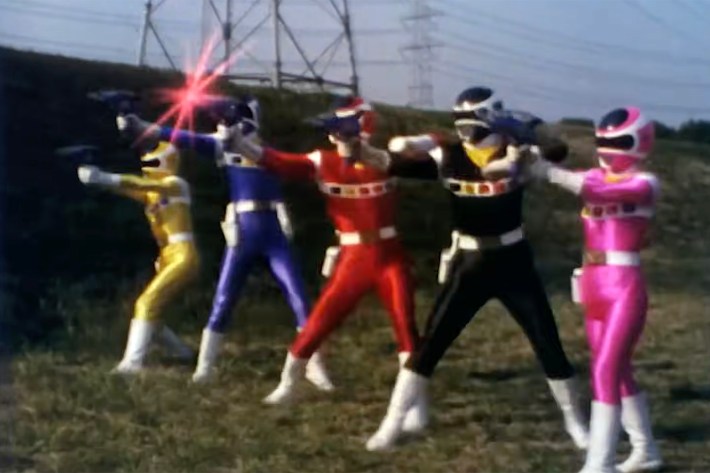
That feels like my relationship with G.I. Joe. I was a kid when the less-respected DIC seasons were airing in the early '90s, but I still connected with the '80s cartoon way more even though I wasn't alive to watch it in real time.
Even though I can't remember it, as a four-year-old, I'm sure I was caught up in the zeitgeist of the original [1995] movie. I can't tell you how many times I watched the "Happy Birthday Zack" VHS tape, "High Five," "Day of the Dumpster." Eventually I started recording those Power Rangers Playbacks playbacks. The third season especially is the one that I connect with the most of the Mighty Morphin seasons, because that's when I have my first inklings of intentionally watching the show.
You clearly went into this project with a deep, ingrained knowledge of the franchise. How daunting was that initial list of people that you wanted to interview for the book?
I want to say it was close to 400 people that I listed, like, in a perfect world I would talk to these 400 people. I think my final list was around 113, 117, and that was all people involved with the show. After doing my research and figuring out how to build a book proposal and everything, it was January 2022 and I started reaching out to agents. Every day, I'm trying to get in contact with somebody, trying to interview people even though nothing is green lit. And I was able to get a few people.
One of the early people I got was Isaac Florentine. He's a director who worked on the show and was a very huge influence on how the early parts of the show worked out. He was awesome. He immediately connected me with a handful of people who were really instrumental, and the people I tried to get who said no. Jonathan Tzachor was one of those guys.
My number one person I wanted to talk to was Jonathan Tzachor. He's never given one on-the-record interview, as far as I can tell, in 30-plus years. He wasn't named this way, but he was effectively the executive producer on the show for the first 10 years, and then he came back later and did have the title for a few years. But we emailed back and forth literally up until I had to turn in my final edits in December 2024. I won't get into why he didn't ultimately want to do it, but he's very loyal to Haim Saban and that speaks for itself. It's very frustrating, but he was kind the whole time. I offered to fly to his house on a day's notice, and this was while my wife was eight months pregnant. I was making contingencies, like, "Okay, Stephanie, your mom has to come down" — I was ready to go and he just didn't want to do it. And that's fine. I respected him saying no, and I really respected him for being willing to keep communicating about it too.
I'm sure you tried to interview Haim Saban.
I reached out to Saban Brands like 40 times. I kept knocking on the door. I was making phone calls every other week for a while, and then it becomes clear that they're never going to engage with you, so you just move on.
One person I interviewed came back and claimed they were basically threatened by Saban, that if they spoke for this, they would never work again in the industry. They asked me to strike their conversation from the book, and I'm trying to avoid even using their pronouns because I don't want to imply who it is. But if you knew who this person was and their contributions to the show, and all the nice things they said — nothing disparaging at all. So it strikes me as odd that this was someone they were worried about speaking.
You have to at some point accept what you have and who you have. I couldn't get any of the original actors to speak, other than Jason Frank. He was awesome and I wish we could have spoken more. He was willing to, but I was going through as many other people as I could before revisiting people and … Obviously it's tragic what happened with him. [Jason David Frank, who played Tommy, initially the Green Ranger, passed away in November 2022]
Gregg Bullock — that name doesn't mean anything to you. It shouldn't, because Power Rangers is the only thing he's ever been on of note. But he played Lieutenant Stone in the show, a police detective character that shows up towards the end season three of Mighty Morphin, and then he stays around for a bit longer after that. Never done conventions, never done anything. He's worked in a civilian job for 30 years since leaving the show. I found where he worked through LinkedIn, sent an email, and he was great. I'm the first person who ever interviewed him and I remain the only person who's interviewed him, still, and that was almost three years ago.

Why do you think it was so difficult to get in touch with the original actors?
At the time, a lot of the actors were represented by the same booking agent, and he's like, "If you're not paying for interviews, we're not doing it." I'm not paying for interviews because I don't have any money for this, but also that's not journalism. That interview is worthless the minute I pay anything for it. I'm not one of these people who's a super hardcore objectivity person. I think there is room for nuance in some of this. But if you're paying for an interview, you've compromised it from the get, if for nobody else but yourself. If you don't get what you want or what you thought you might get out of that interview, then you're always going to feel, "Why did I pay for that?"
It incentivizes you to use it no matter what, because you paid for it. Also it makes it feel like you're paying for a performance. Are they telling the truth or making sure you get your money's worth?
Yeah, you're like, "Dance for me, monkey." I leaned on existing interviews. The thing about Power Rangers that's a blessing and a curse: they've done so many convention appearances, so many panel appearances. There's a terrific podcast, her name is Lisa J and she has this podcast called No Pink Spandex. It's not as active now, but at its peak, she was one of the first people in the Power Rangers fandom who was doing a podcast. There was her and Rangercast by Tyler Waldman. This is well before podcasts were the thing that everybody's losing sleep over. Early on, she got a ton of actors and people to do interviews, because they were just like, "This podcast thing sounds neat. Forty people will hear it." And so those interviews were incredible.
You mentioned earlier, how people don't respect children's television enough, even though it's often a lifeline to kids — and we were all kids once. I know for me, I latched onto the X-Men in 1993, as a 9-year-old kid who was bullied for being different, and I haven't let go for 30 years. What is that hook with Power Rangers? What keeps people coming back, or what reels people back in?
It's ultimately a show about teamwork and diversity and inclusion and all these things that some people in this country want to derail and take away from people. But from day one, even if you want to take issue with the Black guy's in black spandex and the Asian woman is in yellow spandex — okay, there's some fair criticism to be had there. But Walter Jones has talked about how he was the only black superhero on TV for a long time. And Thuy Trang especially: How many live-action Asian women superheroes were on TV before Power Rangers?
Ultimately, it is a kids show — and that's a good thing. Kids have this first foray into what superheroes are and what they can be. They are people that they can aspire to be. That's something good for a four-year-old. I think that aspirational quality is a huge thing. And it's a super sincere show. It doesn't try to be anything more than what it is. It recognizes it's a cheap, fun thing. I honestly think its best comp in terms of television is probably Doctor Who. I think people hold it in higher esteem than Power Rangers. But I think if you really pay attention, they're very similar shows.
It's true — before Doctor Who's modern reboot in 2005, the show didn't have the best special effects. And it's always been positioned as a family show — and that's part of the appeal. With the book coming out, what are you excited for people to learn about Power Rangers? What do you hope those super fans take away from Morphenomenal?
If you're in the Power Rangers fandom, there is a sense of inferiority to your Marvels and Transformers. Some of that comes from a legitimate place of bullying, things that are rooted in our childhoods. Now it gets reinforced because Power Rangers toys don't sell as much as X, or the movie didn't make $500 million. So what? It still lasted for 30 years. If Power Rangers never gets revived again, if it's gone, if it's over, you almost got 1000 episodes of a TV show, three movies, thousands of toys, hundreds of comic books, dozens of video games.
The thing that I want anybody that reads this book to come away with, whether you're a super fan or whether you're someone who's picking it up because you think the cover looks cool and you remembered having a Red Ranger figure when you were seven, is just a respect for Power Rangers — for that person to think this was a show worth writing a book about. And then for the fans, I would hope they feel proud — not of me. You should be proud that Power Rangers has had this impact.
Morphenomenal: How Power Rangers Conquered the World is on sale now.
If you haven't already, consider supporting worker-owned media by subscribing to Pop Heist. We are ad-free and operating outside the algorithm, so all dollars go directly to paying the staff members and writers who make articles like this one possible.

